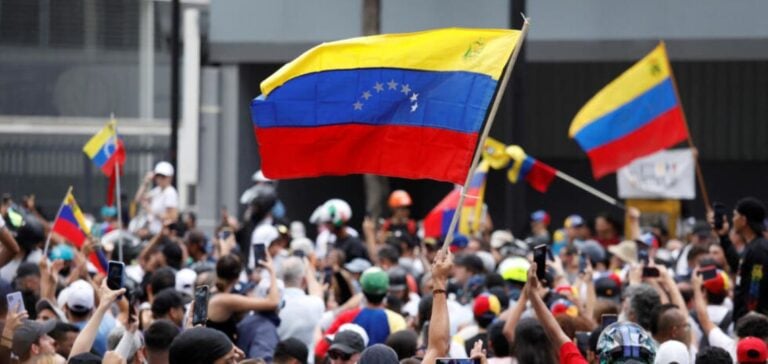US Republican lawmakers call on the Biden administration to swiftly impose tough sanctions on Venezuela.
The request follows President Nicolás Maduro’s disputed claim to have won the July 28 presidential elections.
In a letter dated July 29, Representatives Mario Diaz-Balart, Maria Elvira Salazar and Carlos Gimenez, all of Florida, urge President Biden to support the Venezuelan people by imposing tough sanctions on the Maduro regime, as well as on individuals allegedly responsible for circumventing the will of the Venezuelan people during the 2023-2024 campaign.
They criticize the Biden administration’s easing of sanctions in the gold and oil sectors, arguing that it has not motivated President Maduro to respect an agreement for free elections.
“The negotiations bought the Maduro regime precious time and misled many into believing that the elections would be fair,” they state in their letter.
Criticism of Current Strategy
Senator Rick Scott, also a Republican from Florida, also criticized the Biden administration for, in his view, strengthening Maduro’s power by granting him sanctions relief in exchange for a promise of fair elections.
Scott called on the administration to recognize opposition candidate Edmundo González as president-elect.
He declared in a separate letter that the agreement with Maduro was a failure and called for an immediate reimposition of sanctions.
Nicolás Maduro claims to have won the election with 51.2% of the vote, but has provided no evidence to support this result.
The opposition campaign, meanwhile, claims to have collected enough tally sheets to prove that González won.
Impact on the Energy Sector
The repercussions of this political crisis are already being felt in the Venezuelan energy sector.
Gasoline shortages are beginning to appear in Caracas and other major cities, affected by the protests that followed the disputed election.
According to sources, some gas stations in Caracas ran out of fuel to sell as early as July 30.
Those that still had stocks were seeing queues of drivers eager to fill up.
An official of PDVSA, the national oil company, said that the supply of gas stations by distribution centers had been disrupted by the protests, leading to a temporary suspension of supplies in some areas for security reasons.
However, oil and refining operations were not affected by the election or the demonstrations.
PDVSA nevertheless suspended work in its administrative offices across the country from July 27 to August 1.
International reactions and consequences
Venezuela’s Defense Minister, Vladimir Padrino, supported the proclamation of Nicolás Maduro as president-elect for a third term.
Protests against Maduro’s proclamation began in Caracas in the early hours of July 29 and spread throughout the country.
According to the Minister of Defense, 48 military and police personnel were injured, and a National Guard sergeant was shot dead in the state of Aragua.
Six people had lost their lives and 132 were injured during the protests as of July 29, according to the non-governmental organization Foro Penal.
Some countries and international organizations are calling for a transparent vote count to clarify the results of the presidential election and dispel doubts about the true winner.






















